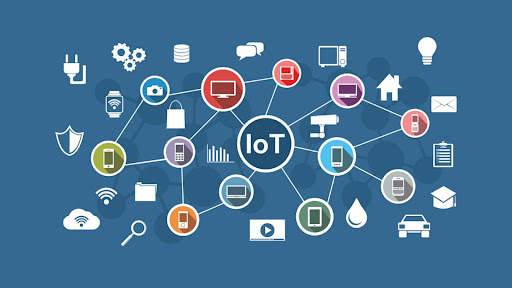The Internet of Things (IoT) and the Python programming language have become a startling synchronization in the digital age. The Internet of Things (IoT) software development company is a network of connected gadgets equipped with sensors, software, and other technologies to collect and exchange data. To leverage the full potential of IoT, businesses need a python development agency that specializes in creating robust and scalable Python-based solutions.
On the other hand, Python is a flexible and approachable programming platform renowned for its ease of use and readability. They have developed together that enables developers to produce cutting-edge IoT solutions and apps. What, though, is Python's position in IoT development going forward?
In this article, we'll examine Python's potential to influence the direction of IoT and its applicability in the context of the quickly changing digital environment.
Introduction to Python for IoT Development
Python is a popular programming language for creating Internet of Things (IoT) projects. It is suitable for IoT application development company because it has various characteristics and advantages. Python is well regarded for its readability and simplicity, making it simple to learn and comprehend. This makes it simple enough for beginners to use and speeds up the development of IoT applications.
Furthermore, Python offers a sizable ecosystem of modules and frameworks that offer pre-built answers for typical IoT tasks. Python can be used for various IoT applications, including processing sensor data, controlling devices, and data analysis. Overall, Python is important for the growth of IoT since it allows programmers to construct creative and effective IoT solutions.
Device Communication and Protocols
Device communication is a crucial aspect of IoT development, and Python provides powerful tools to make it easier. Python can implement various device communication protocols such as MQTT (Message Queuing Telemetry Transport) and CoAP (Constrained Application Protocol). These protocols allow devices to exchange data efficiently and reliably in the IoT ecosystem.
Python's flexibility and simplicity make it ideal for interacting with sensors, actuators, and IoT devices. With Python, developers can easily read data from sensors and control actuators to perform actions in the physical world. Python libraries and frameworks provide convenient APIs (Application Programming Interfaces) to handle communication with different types of devices.
Data Processing and Analytics
Utilizing the power of IoT (Internet of Things) databases requires data processing and analytics. With its extensive libraries like Pandas and NumPy, Python provides developers with powerful tools for processing and analyzing this data.
These libraries offer functions and methods that simplify data cleaning, transformation, and aggregation tasks. With Python, developers can efficiently handle large datasets generated by IoT devices.
Moreover, Python's ecosystem includes a variety of machine learning libraries, such as Scikit-learn and TensorFlow, enabling the implementation of advanced algorithms for gaining valuable insights from IoT data. Machine learning algorithms can help identify patterns, detect anomalies, and make predictions based on the collected information.
By using Python in IoT application development, developers can leverage its data processing and analytics capabilities to extract meaningful information from the vast amounts of data generated by IoT devices. This allows for better decision-making, optimization of processes, and the development of intelligence.
IoT Frameworks and Platforms
In the future of IoT development, Python will continue to play a significant role through its compatibility with various frameworks and platforms. Python-based IoT frameworks like Flask and Django will be widely used to build IoT applications. These frameworks provide developers with the tools and libraries to create efficient and scalable IoT solutions.
Additionally, Python will be leveraged with IoT platforms and cloud services. Python's versatility and extensive library support make it ideal for integrating IoT devices with cloud-based services, enabling seamless data processing, storage, and analysis. Overall, Python's presence in IoT frameworks and platforms will continue to grow, making it an essential language for developing innovative and interconnected IoT applications.
Security and Privacy in IoT
Making sure of security and privacy will be crucial in the future of Python in IoT development. Python can play a significant role in addressing security challenges in IoT projects. It can be used to implement robust security measures to protect IoT devices and data from unauthorized access.
Python's versatility and extensive libraries allow developers to encrypt sensitive information, authenticate users, and establish secure communication channels between devices.
Moreover, Python can aid in ensuring privacy compliance by implementing data anonymization and access control. By leveraging the power of Python, IoT developers can create secure and privacy-conscious solutions that inspire confidence in users.
Conclusion
Python development agency holds significant advantages for IoT application development. Its simplicity, versatility, and vast ecosystem of libraries make it an ideal language for building IoT applications. Python's ease of use allows developers to quickly prototype and deploy IoT solutions, while its extensive library support enables seamless integration with hardware and connectivity protocols.
In conclusion, Python's ascendancy in IoT is undeniable. Its popularity and robust community backing guarantee a steady stream of tailored tools. In this ever-expanding IoT landscape, Python stands as a beacon of innovation. Companies like Finoit, under the visionary leadership of CEO Yogesh Choudhary, are instrumental in harnessing Python's potential. With their expertise, Python is set to revolutionize IoT, enabling a future where connectivity and efficiency seamlessly converge.







